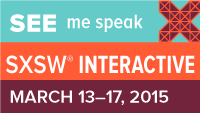 I’ll save you the suspense. The answer is None of the Above.
I’ll save you the suspense. The answer is None of the Above.
Although none of these guys will likely be hired, every year, roughly one quarter of all people who post profiles on Lrngo and other search and hire sites don’t seem to get the memo. Let’s look at the reasons why, and then find what they all have in common.
A. The “mugshot.” Ok, we get that you’re not the smiley type. We even get that you might live in a rough area, so you don’t want to look like “food.” Unfortunately though, people don’t usually do business with anyone they’re not comfortable with. You’re selling your services and abilities, but you’re not showing the face of a salesman. You’re showing the face of someone who makes people feel like they have to keep their eye on you. Would you feel relaxed letting this guy into your office? How about your house? The point is, letting people see that you at least have the capacity to be friendly makes them feel like they want to work with you. Otherwise, they will have the impression that you’re not a team player, or worse that they have to worry about your intentions.
B. The “goofball.” This is the other extreme. Sure a sense of humor is good, but not if it affects performance or becomes a distraction. You might be fun to be around and even be a team player, but is this the face of someone who I can count on to reach a goal or to tell me the truth? Does this picture tell me you’re funny? No, it tells me you’re not taking this seriously. Unfortunately for you though, I am, and I’m not going to hire you.
C. The “nothing.” Before I get into this, I’m going to make a disclaimer here. There may be legitimate reasons if you are female to not have a picture, for instance, in situations or countries where it may be dangerous to do so. However, for the other 90%, you better put up a picture if you want to compete. The reasons why are simple. First, psychologically, people want to feel assured that your profile is real and you are an actual person with good intentions. While you won’t really know how accurate the picture is as a representation until a visual meeting, a picture is the first reference upon which a path to that perceived reality is based. Second, the unknown is always scarier than the known. (It’s probably fine, but what if he has hair down to his knees and molars the size of the Pyramids?) Finally, people like to feel that they are on equal ground. This is why statistics from basically every site with profiles show consistently that profiles without pictures are contacted less often (generally 5x to 50x). Let me explain it another way. If I took this seriously enough to put up a picture and you didn’t, the bottom line is, I’m not talking to you.
D. The “incognito.” Congratulations. You are so clever, the way you beat the system with your cool sunglasses. You managed to get a picture of your face on your profile even though no one can really see what you look like. Unfortunately for you, that’s the whole point of a picture. The “incognito” might as well be the “nothing.” (Are you wanted in ten states, or only five?) They say eyes are the windows to the soul, but apparently your soul is tinted.
At the end of the day, what all of these examples have in common is that they project a visual lack of trust. Of course, one could argue that until you actually see the real person, you don’t know whether you can trust the authenticity of a picture anyway (which is why the other worst thing you can do is put up a picture that doesn’t actually look like you). However, psychologically, the right picture induces the perception of an actual person who can be trusted, and all people are looking to hire someone they can trust to help further their cause so that the outcome will be a job well done.
It is well known in business that people also naturally want to work with people they like. A smile goes a long way in this regard. It’s not a beauty contest, it’s an “I think this person can help me get this done” contest, and “I will achieve my goal if I hire him/her.” By the way, it’s no different with barter transactions. You still want to know that you can trust them with your goals, and psychologically at least, a picture of their face is an indicator–not just of who you are working with, but also that they are not afraid to be themselves, and that they are taking the opportunity seriously.
They say a picture is worth a thousand words. However, a thousand random words are meaningless, so don’t put up a random picture. Make sure it says exactly what you want it to say about you.


